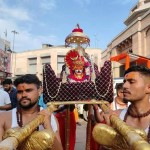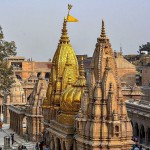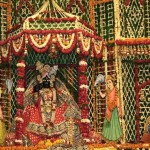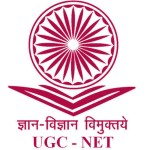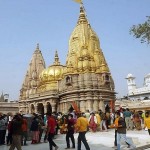Sawan Purnima 2024
Sawan Purnima is one of the most revered festivals in the Hindu calendar, especially in the holy city of Kashi (Varanasi). Falling on August 19, 2024, this auspicious day marks the full moon during the month of Sawan (Shravan), which is dedicated to the worship of Lord Shiva. The city of Kashi, often referred to as the spiritual capital of India, becomes a hub of religious activity and fervor during this time. Among the various rituals that take place, the swinging of the deity Kashipuradhishwara, more commonly known as Baba Vishwanath, stands out as a unique and significant tradition.
In this extensive article, we will delve into the history, significance, rituals, and preparations surrounding the Sawan Purnima celebrations in Kashi, with a focus on the iconic palanquin procession from the Mahant's residence to the Kashi Vishwanath Temple.
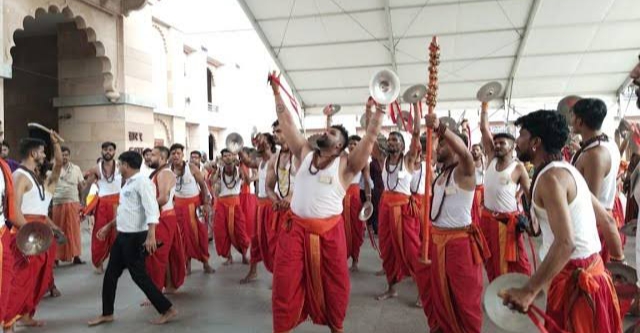
Historical Significance of Sawan Purnima in Kashi
The month of Sawan holds a special place in Hinduism, as it is believed that during this period, Lord Shiva performs his cosmic dance, or Tandava, and showers his blessings upon his devotees. In Kashi, a city that has been a center of Shiva worship for millennia, Sawan Purnima is celebrated with unparalleled devotion and enthusiasm.
The Kashi Vishwanath Temple, dedicated to Lord Shiva, is one of the twelve Jyotirlingas, which are considered the holiest shrines of Shiva. The temple has a rich history that dates back to ancient times, and it has been rebuilt and renovated several times over the centuries. The traditions and rituals associated with the temple are deeply ingrained in the cultural and spiritual fabric of Kashi.
One of the most cherished traditions during Sawan Purnima is the swinging of Kashipuradhishwara. This ritual is not just a religious act but a symbol of the deep connection between the deity and the people of Kashi. The practice of swinging the deity, known as Jhulanotsav, is believed to invoke the blessings of Lord Shiva and bring peace and prosperity to the community.
The Role of the Mahant Family in the Celebrations
The Mahant family of Kashi Vishwanath Temple has been the custodian of many temple traditions for generations. Their involvement in the Sawan Purnima celebrations is a continuation of a legacy that has been passed down through the ages. The Mahant's residence, located in the Tehrinim area of Kashi, is not just a home but a spiritual center where many rituals are conducted.
The late Mahant Dr. Kulapati Tiwari, a revered figure in Kashi, was instrumental in upholding the traditions of the temple. After his passing, his son, Pandit Vachaspati Tiwari, has taken on the responsibility of leading the rituals and ensuring that the family's legacy continues. The Mahant family has always been closely connected with the people of Kashi, and their involvement in the Sawan Purnima celebrations is seen as a reflection of the strong bond between the temple and the local community.
Preparations for Sawan Purnima 2024
As Sawan Purnima approaches, the city of Kashi begins its preparations for the grand celebrations. The Mahant's residence, also known as Gaura-Sadanika, becomes a hive of activity as devotees and organizers work tirelessly to ensure that every aspect of the event is meticulously planned.
The preparations are not just limited to the rituals themselves but also involve ensuring that the thousands of devotees who flock to Kashi during this time are able to participate in the celebrations. The Mahant family, along with the temple authorities, coordinates with the local administration to manage the crowd and ensure that the event runs smoothly.
The Tehrinim area, where the Mahant's residence is located, is decorated with flowers, lights, and traditional motifs in anticipation of the festivities. The Panchbadan (five-faced) silver idol of Baba Vishwanath is carefully prepared for the rituals, with special attention given to the deity's adornments and the sacred items used in the puja.
The Palanquin Procession: A Journey of Devotion
One of the most iconic aspects of the Sawan Purnima celebrations in Kashi is the palanquin procession of Baba Vishwanath's idol. The procession starts from the Mahant's residence and makes its way through the narrow, winding streets of Kashi to the Kashi Vishwanath Temple. This journey is not just a physical one but a spiritual pilgrimage for the devotees who accompany the palanquin.
The procession is a sight to behold, with devotees lining the streets to catch a glimpse of the deity. The air is filled with the sound of devotional songs, the ringing of bells, and the chanting of mantras as the palanquin, adorned with flowers and lights, is carried through the city.
The palanquin procession is led by Pandit Vachaspati Tiwari, who carries forward the tradition of his forefathers. The journey from the Mahant's residence to the temple is symbolic of the connection between the deity and the people of Kashi. It is a reminder of the deep spiritual bond that exists between the city and its presiding deity, Lord Shiva.
As the procession makes its way to the temple, devotees offer flowers, incense, and prayers to the deity. The streets are filled with an atmosphere of devotion and reverence as the palanquin passes by, and many people consider it a blessing to be able to witness this sacred event.

The Rituals at the Mahant's Residence
Before the palanquin procession begins, the rituals at the Mahant's residence are conducted with great devotion and care. The Panchbadan idol of Baba Vishwanath is placed in a special shrine within the residence, where it is worshipped with traditional rituals.
The puja involves the chanting of Vedic hymns, the offering of flowers, fruits, and other sacred items, and the lighting of lamps and incense. The rituals are performed by the Mahant family, with Pandit Vachaspati Tiwari leading the ceremonies.
The Mahant's residence is open to devotees during this time, allowing them to participate in the rituals and seek the blessings of Baba Vishwanath. The residence is filled with the sound of devotional music, as the Shivanjali program takes place. This musical offering is an integral part of the celebrations, adding to the spiritual atmosphere of the event.
The rituals at the Mahant's residence are a reflection of the deep-rooted traditions of Kashi. The Mahant family has been performing these rituals for generations, and their involvement in the Sawan Purnima celebrations is seen as a continuation of the spiritual legacy of the city.
The Swinging Ceremony at Kashi Vishwanath Temple
After the palanquin procession reaches the Kashi Vishwanath Temple, the main event of the day takes place – the swinging ceremony of Kashipuradhishwara. This ritual, known as Jhulanotsav, is a unique tradition that has been followed in Kashi for centuries.
The ceremony involves placing the Panchbadan idol of Baba Vishwanath on a beautifully decorated swing within the temple. The swing is adorned with flowers, lights, and traditional motifs, and it is a symbol of the joy and reverence with which the devotees honor Lord Shiva.
The swinging ceremony is performed with great care and devotion. The Mahant family, led by Pandit Vachaspati Tiwari, gently swings the deity, accompanied by the chanting of mantras and the ringing of bells. The atmosphere within the temple is charged with spiritual energy as the devotees offer their prayers and seek the blessings of Baba Vishwanath.
The Jhulanotsav is not just a ritual; it is a celebration of the divine presence of Lord Shiva in Kashi. The swinging of the deity is believed to invoke the blessings of the Lord, bringing peace, prosperity, and spiritual fulfillment to the devotees.
The ceremony is attended by a large number of devotees, including prominent figures from the city. The temple is filled with the sound of devotional music, as the Shivanjali program continues within the temple premises. The event is a true reflection of the spiritual vibrancy of Kashi, where tradition and devotion come together in a grand celebration of faith.
The Sawan Purnima celebrations in Kashi are not just the responsibility of the temple and the Mahant family; they are a community event that involves the active participation of the people of the city. The residents of Kashi take great pride in their cultural heritage, and the Sawan Purnima celebrations are seen as a reflection of the city's spiritual identity.
The community plays a vital role in organizing the event, from decorating the streets to managing the crowds. Local volunteers assist in ensuring that the procession and rituals are conducted smoothly, and the city administration works closely with the temple authorities to ensure the safety and comfort of the devotees.
The involvement of the community is a testament to the strong bond between the people of Kashi and their deity, Lord Shiva. The Sawan Purnima celebrations are seen as a collective expression of devotion, where every resident of the city plays a part in honoring their spiritual traditions.
The celebrations also attract a large number of visitors from outside Kashi, who come to witness the unique rituals and experience the spiritual energy of the city. The presence of these visitors adds to the vibrancy of the event, as Kashi becomes a melting pot of devotion and cultural exchange during Sawan Purnima.
The Spiritual Significance of Sawan Purnima
Sawan Purnima is not just a festival; it is a time of deep spiritual reflection and devotion. The rituals and traditions associated with this day are a reminder of the eternal presence of Lord Shiva in Kashi, and the blessings that he bestows upon his devotees.
For the people of Kashi, Sawan Purnima is a time to renew their connection with the divine. The rituals, the palanquin procession, and the swinging ceremony are all seen as acts of devotion that bring the devotees closer to their deity.
The significance of Sawan Purnima extends beyond the rituals themselves. It is a time when the people of Kashi come together to celebrate their cultural heritage and reaffirm their faith in the spiritual traditions that define their city.
The festival also serves as a reminder of the timeless nature of Kashi, a city that has been a center of spirituality for millennia. The traditions and rituals that are followed during Sawan Purnima are a reflection of the deep-rooted spiritual identity of the city, and they continue to resonate with the people of Kashi to this day.
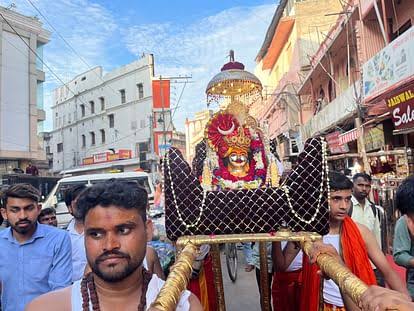
Conclusion
Sawan Purnima 2024 in Kashi promises to be a grand celebration filled with devotion, tradition, and spiritual fervor. The swinging ceremony of Kashipuradhishwara, the palanquin procession, and the rituals at the Mahant's residence are all integral parts of this auspicious day. As the city comes together to honor Lord Shiva, the traditions of Kashi continue to shine, reflecting the deep spiritual roots that make this city truly unique.
For those seeking to experience the divine energy of Kashi, Sawan Purnima is the perfect occasion to immerse in the city's timeless traditions and connect with its spiritual essence. Whether you are a devotee or a curious traveler, the celebrations in Kashi will leave you with a sense of awe and reverence for the city's rich cultural heritage.
In conclusion, Sawan Purnima is not just a festival; it is a celebration of the eternal presence of Lord Shiva in Kashi. The rituals and traditions associated with this day are a testament to the deep spiritual connection between the city and its deity, and they continue to inspire devotion and reverence in the hearts of the people of Kashi.







